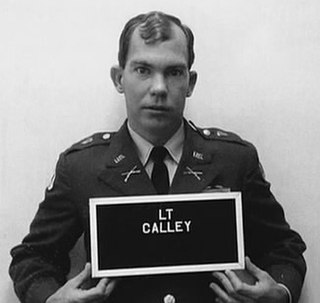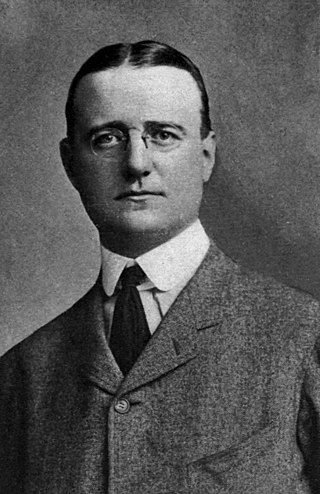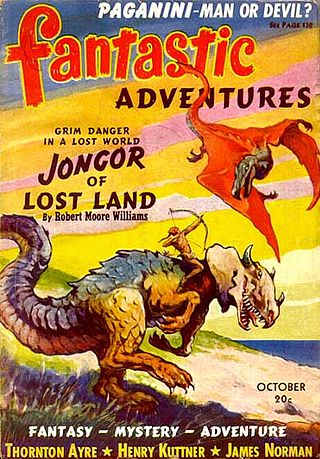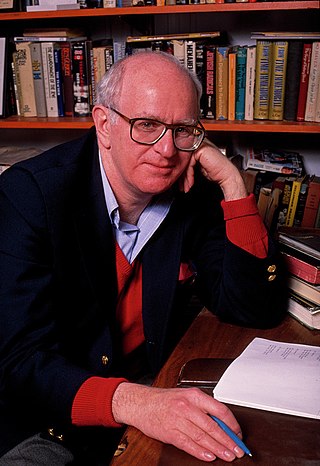Related Research Articles

Gonzo journalism is a style of journalism that is written without claims of objectivity, often including the reporter as part of the story using a first-person narrative. The word "gonzo" is believed to have been first used in 1970 to describe an article about the Kentucky Derby by Hunter S. Thompson, who popularized the style. It is an energetic first-person participatory writing style in which the author is a protagonist, and it draws its power from a combination of social critique and self-satire. It has since been applied to other subjective artistic endeavors.

Hunter Stockton Thompson was an American journalist and author. He rose to prominence with the publication of Hell's Angels (1967), a book for which he spent a year living with the Hells Angels motorcycle club to write a first-hand account of their lives and experiences. In 1970, he wrote an unconventional article titled "The Kentucky Derby Is Decadent and Depraved" for Scanlan's Monthly, which further raised his profile as a countercultural figure. It also set him on the path to establishing his own subgenre of New Journalism that he called "Gonzo", a journalistic style in which the writer becomes a central figure and participant in the events of the narrative.

Richard Milhous Nixon was the 37th president of the United States, serving from 1969 to 1974. A member of the Republican Party, he previously served as a representative and senator from California and as the 36th vice president from 1953 to 1961 under President Dwight D. Eisenhower. His presidency saw the reduction of U.S. involvement in the Vietnam War, détente with the Soviet Union and China, the Apollo 11 Moon landing, and the establishment of the Environmental Protection Agency and Occupational Safety and Health Administration. Nixon's second term ended early when he became the only U.S. president to resign from office, as a result of the Watergate scandal.

Mordecai Richler was a Canadian writer. His best known works are The Apprenticeship of Duddy Kravitz (1959) and Barney's Version (1997). His 1970 novel St. Urbain's Horseman and 1989 novel Solomon Gursky Was Here were nominated for the Booker Prize. He is also well known for the Jacob Two-Two fantasy series for children. In addition to his fiction, Richler wrote numerous essays about the Jewish community in Canada, and about Canadian and Quebec nationalism. Richler's Oh Canada! Oh Quebec! (1992), a collection of essays about nationalism and anti-Semitism, generated considerable controversy.

William Laws Calley Jr. is a former United States Army officer, war criminal, and mass murderer who was convicted by court-martial for the murder of 22 unarmed South Vietnamese civilians in the My Lai massacre on March 16, 1968, during the Vietnam War. Calley was released to house arrest under orders by President Richard Nixon three days after his conviction. A new trial was ordered by the United States Court of Appeals for the Fifth Circuit but that ruling was overturned by the Supreme Court. Calley served three years of house arrest for the murders. Public opinion at the time about Calley was divided. Since his dismissal from the U.S. Army and release from prison, Calley has avoided public attention.

Melvin Robert Laird Jr. was an American politician, writer and statesman. He was a U.S. congressman from Wisconsin from 1953 to 1969 before serving as Secretary of Defense from 1969 to 1973 under President Richard Nixon. Laird was instrumental in forming the administration's policy of withdrawing U.S. soldiers from the Vietnam War; he coined the expression "Vietnamization," referring to the process of transferring more responsibility for combat to the South Vietnamese forces. First elected in 1952, Laird was the last living Representative elected to the 83rd Congress at the time of his death.

Maclean's, founded in 1905, is a Canadian news magazine reporting on Canadian issues such as politics, pop culture, and current events. Its founder, publisher John Bayne Maclean, established the magazine to provide a uniquely Canadian perspective on current affairs and to "entertain but also inspire its readers". Rogers Media, the magazine's publisher since 1994, announced in September 2016 that Maclean's would become a monthly beginning January 2017, while continuing to produce a weekly issue on the Texture app. In 2019, the magazine was bought by its current publisher, St. Joseph Communications.
Ramparts was a glossy illustrated American political and literary magazine, published from 1962 to 1975 and closely associated with the New Left political movement. Unlike most of the radical magazines of the day, Ramparts was expensively produced and graphically sophisticated.

Finley Peter Dunne was an American humorist, journalist and writer from Chicago. In 1898 Dunne published Mr. Dooley in Peace and in War, a collection of his nationally syndicated Mr. Dooley sketches. Speaking with the thick verbiage and accent of an Irish immigrant from County Roscommon, the fictional Mr. Dooley expounded upon political and social issues of the day from his South Side Chicago Irish pub. Dunne's sly humor and political acumen won the support of President Theodore Roosevelt, a frequent target of Mr. Dooley's barbs. Dunne's sketches became so popular and such a litmus test of public opinion that they were read each week at White House cabinet meetings.
"The Kentucky Derby Is Decadent and Depraved" is a seminal sports article written by journalist Hunter S. Thompson on the 1970 Kentucky Derby, which first appeared in Scanlan's Monthly in June of that year. The article marked the birth of what would become known as "gonzo journalism".

Fantastic Adventures was an American pulp fantasy and science fiction magazine, published from 1939 to 1953 by Ziff-Davis. It was initially edited by Raymond A. Palmer, who was also the editor of Amazing Stories, Ziff-Davis's other science fiction title. The first nine issues were in bedsheet format, but in June 1940 the magazine switched to a standard pulp size. It was almost cancelled at the end of 1940, but the October 1940 issue enjoyed unexpectedly good sales, helped by a strong cover by J. Allen St. John for Robert Moore Williams' Jongor of Lost Land. By May 1941 the magazine was on a regular monthly schedule. Historians of science fiction consider that Palmer was unable to maintain a consistently high standard of fiction, but Fantastic Adventures soon developed a reputation for light-hearted and whimsical stories. Much of the material was written by a small group of writers under both their own names and house names. The cover art, like those of many other pulps of the era, focused on beautiful women in melodramatic action scenes. One regular cover artist was H.W. McCauley, whose glamorous "MacGirl" covers were popular with the readers, though the emphasis on depictions of attractive and often partly clothed women did draw some objections.

Sidney E. Zion was an American writer. His works include Markers, Begin from Beginning, Read All about It, Trust Your Mother but Cut the Cards, Loyalty and Betrayal: The Story of the American Mob and Markers. He co-authored The Autobiography of Roy Cohn. He also was a co-founder and co-editor of Scanlan's Monthly magazine.
Bibliography of works by American author and journalist Hunter S. Thompson.
Denis Sanders was an American film director, screenwriter and producer who directed the debut performances of Robert Redford and Tom Skerritt in the 1962 film War Hunt. He won two Academy Awards, the first for Best Short Subject in 1955 for A Time Out of War that had served as his master's degree thesis at UCLA and which he co-scripted with his brother Terry Sanders; and the second for Best Documentary in 1970 for Czechoslovakia 1968. In 1958, he teamed up again with Terry Sanders to adapt Norman Mailer's World War II novel The Naked and the Dead.

Mr. Dooley is a fictional Irish immigrant bartender created by American journalist and humorist Finley Peter Dunne. Dooley was the subject of many Dunne columns between 1893 and 1915, and again in 1924 and 1926. Dunne's essays contain the bartender's commentary on various topics. They became extremely popular during the 1898 Spanish–American War and remained so afterwards; they are collected in several books. The essays are in the form of conversations in Irish dialect between Mr. Dooley, who in the columns owns a tavern in the Bridgeport area of Chicago, and one of the fictional bar's patrons with most of the column a monologue by Dooley. The pieces are not widely remembered, but originated lasting sayings such as "the Supreme Court follows the election returns".

Charles F. Fanning, Jr. is an Irish American historian and academic.

Warren James Hinckle III was an American political journalist based in San Francisco. Hinckle is remembered for his tenure as editor of Ramparts magazine, turning a sleepy publication aimed at a liberal Roman Catholic audience into a major galvanizing force of American radicalism during the Vietnam War era. He also helped create Gonzo journalism by first pairing Hunter S. Thompson with illustrator Ralph Steadman.
The Bangladesh Liberation War was a revolutionary independence war that took place in South Asia in 1971; this event resulted in the establishment of the republic of Bangladesh. The war pitted East Pakistan against West Pakistan and lasted over a duration of nine months. It witnessed large-scale atrocities, the exodus of 10 million refugees and the indiscriminate killing of 100,000 to 300,000 people from both sides.

Kodansha Ltd. is a Japanese privately held publishing company headquartered in Bunkyō, Tokyo. Kodansha publishes the manga magazines Nakayoshi, Afternoon, Evening, Weekly Shōnen Magazine, and Bessatsu Shōnen Magazine, as well as the more literary magazines Gunzō, Shūkan Gendai, and the Japanese dictionary Nihongo Daijiten. Kodansha was founded by Seiji Noma in 1910, and members of his family continue as its owners either directly or through the Noma Cultural Foundation.
John McCandish King was an American petroleum entrepreneur and Republican politician. He is notable for being one of the youngest members elected to the Illinois House of Representatives in its history and for his role in a fraudulent scam involving Investors Overseas Service.
References
- ↑ "Scanlan's Monthly Complete Run, Issues 1-8". Burnside Rare Books. Retrieved April 19, 2023.
- 1 2 3 4 "Hunter S. Thompson in Scanlans Magazine". HST Books. November 24, 2008. Retrieved November 29, 2015.
- ↑ "Product Details". Amazon. Retrieved November 29, 2015.
- 1 2 Kidd, Paul (September 14, 1970). "Magazine revives lost art of muck raking". Vol. 55, no. 50. Medicine Hat News. Archived from the original on May 5, 2019. Retrieved May 5, 2019.
- ↑
- "Guerrilla War in the USA" (PDF). Scanlan's Monthly. 1 (8). St. Jean, Quebec: Scanlan’s Literary House. January 1971. Retrieved April 19, 2023– via freedomarchives.org.
- "Guerrilla War in the USA" (PDF). Scanlan's Monthly. 1 (8). St. Jean, Quebec: Scanlan’s Literary House. January 1971. Retrieved April 19, 2023– via The Harold Weisberg Archive on the JFK Assassination at Beneficial-Hodson Library, Hood College.
- ↑ "Scanlan's Monthly". SVA Library Picture and Periodicals Collection. February 9, 2015. Retrieved November 29, 2015.
- ↑ "Nixon Meets Heads Of 2 City Unions; Hails War Support". The New York Times. May 27, 1970. Retrieved May 5, 2019.
- ↑ Corruption and racketeering in the New York City construction industry : final report to Governor Mario M. Cuomo (PDF). New York University Press. 1990. p. 55. Retrieved May 5, 2019.
- ↑ Dean, John (1976). Blind Ambition. ISBN 9781504041003.
- ↑ "NIXON AND THE BUMS. AN EDITORIAL" . Retrieved May 5, 2019.
- ↑ E.g., p. 3, Scanlan's, August 1970
- ↑ Dunne, Finley Peter [1900]. Mr. Dooley's Philosophy (in en),p.260 at Project Gutenberg
- ↑ wiktionary:trust everybody, but cut the cards